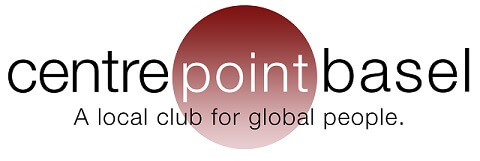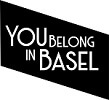Policies
Cookie Policy
Last reviewed/updated: 14 October 2025
Board member responsible: Communications Coordinator
What is a cookie?
A cookie is a small text file placed on your computer, tablet, or mobile device when you visit a website. Cookies help the website remember your preferences, login details, or other settings, so we can provide a smoother and more personalised experience. Cookies do not store personal information about you — only information about your device.
1 Types of cookies we use
1.1 Necessary Cookies
· These cookies are essential for the website to function properly. They allow you to navigate the site, stay logged in, and use basic features. Without these cookies, some parts of the site may not work correctly.
1.2 Functionality Cookies
· These cookies remember choices you make on the site, such as your username or custom settings. They help us provide a more personalised experience when you return.
1.3 Analytical Cookies
· These cookies help us understand how visitors interact with our website so we can improve it. We use Google Analytics to collect aggregated, non-identifiable information about site usage. No personal information is stored.
2 Managing cookies
· Most web browsers accept cookies by default. You can change your browser settings to block or restrict cookies at any time. Please note that restricting cookies may affect some website functions. You can also manage your cookie preferences using the cookie settings tool on our website.
3 Consent
· By continuing to use this website, you consent to our use of cookies, unless you have disabled them in your browser settings or adjusted your preferences via our cookie settings tool.
4 Third-party cookies
· Some cookies may be set by third-party services, such as Google Analytics. These cookies are used to analyse website traffic and improve user experience. You can learn more about these services and manage their cookies on the respective third-party websites.
5 Questions
· If you have any questions about our cookie use, please contact us:
Centrepoint
Im Lohnhof 8, 4051 Basel, Switzerland
Email: centrepoint@centrepoint.ch
Email Usage Policy
Last updated: 25th September 2019
The following policy applies to all volunteers who have Centrepoint email accounts:
- When sending emails or replying to emails to external organisations (e.g. advertisers) on behalf of Centrepoint, the Centrepoint email address must be used.
-
When sending emails to other volunteers or to Centrepoint members on behalf of Centrepoint, volunteers may choose whether to use their personal email account or their Centrepoint email account, though the latter is strongly recommended for the following reasons:
To protect our volunteers from unwanted emails: our volunteers liaise with external organisations and/or other members (e.g. when organising events). While rare, it can happen that an organisation or member becomes "a nuisance" sending unwanted emails. If the volunteer is using a Centrepoint email address we can simply change the email address so that the offending emails are no longer received (as opposed to the volunteer having to change their personal email address).
To protect our volunteers' data: a volunteer cannot be certain what happens to an email which they send to an organisation and/or member - Is it forwarded and if so to whom? Is it added to a database for future mailings? Therefore using a Centrepoint email address is less risky than using a personal email address to make contact.
To present a professional image of Centrepoint: we think that if organisations and members receive emails from multiple Centrepoint volunteers it is helpful for them to experience the same "brand". By using Centrepoint emails we can ensure that we are all using standard fonts and signatures.
To help future volunteers who take over a role at Centrepoint: it can be very useful for volunteers to see the email history for the roles they take on e.g. a new Trip Organiser volunteer to see emails about past events. By using a Centrepoint email account for Centrepoint business it means that all relevant emails are stored for future volunteers to access if necessary
-
If volunteers forward any emails from their Centrepoint email accounts to their personal email accounts, they must ensure that the emails are deleted from their personal accounts once they have been dealt with and are only stored in their Centrepoint email account.
-
When sending an email to multiple members the “BCC” (Blind Carbon Copy) option should be used rather than the “To” option so that members’ email addresses are not divulged to each other. An exception to this is when a Centrepoint group has agreed that their email addresses can be shared amongst each other.
Non-Member Attendance at Centrepoint Events Policy
Last updated: 4 June 2019
The Non-Member Attendance at Centrepoint Events Policy applies to all events that are organised by Centrepoint, either on- or off-site. The rules for non-member attendance vary by event type as detailed below.
Note. Standard members include all people living in a household that has paid the annual membership fee. Non-members are therefore anyone else.
Aperos
Non-members can attend aperos and are charged CHF 12 to attend.
Centrepoint Groups
Non-members cannot attend Centrepoint Groups. To join, they must become a Centrepoint member.
Coffee Mornings and Kaffee Auf Deutsch
Non-members can attend a couple of these events but should then be requested to join Centrepoint. If they do not wish to join, then the non-member should be informed that they can no longer attend. A weekly sign in sheet will track attendance, noting non-members.
Conversation Groups
Non-members can attend one session. Sometimes a second session is provided if the non-member needs to attend another group to ensure the best language level is found. If they decide to join a group then they must become a Centrepoint member. If they do not wish to join, then the non-member should be informed that they can no longer attend.
The Conversation Group Board Members check that attendees are members of Centrepoint and follow up with any attendees who are not.
Talks and Activities held at Centrepoint, including My Place
Non-members cannot typically attend these events (but see exceptions below). If the event organiser is uncertain whether a person is a member or not, they can either check with Membership (if the request to attend is made in advance) or ask the person when they attend the event.
Exception 1: If an event is under-subscribed by the booking deadline date (usually one week before an event) then event organisers/presenters can invite non-members to make up the numbers. If the event is chargeable, non-members should be charged the same fee as members.
Exception 2: If a member asks to bring a house-guest, i.e. a friend or family member staying with them, then up to two house-guests may be considered as being part of the household, but this is at the discretion of the event organiser and should not be included in the notice advertising the event. The following procedure should be followed:
- If places are restricted and there is a ballot process, then members will be prioritised over house-guests.
- If places are restricted and it is first come, first served, then members will be prioritised until a week before the event.
- If places are unrestricted (i.e. no maximum limit), then house-guests can be accepted.
If the event is chargeable, non-members/house-guests should be charged the same fee as members.
Tours, Trips and Outings held offsite
Non-members cannot typically attend these events (but exception 2 outlined above applies).
Vernissages
Non-members are welcome to attend vernissages.
Miscellaneous Events
Non-member attendance at any events that do not fall under the above categories must be agreed by the Board before the event is advertised.
Should any query or dispute arise when following this policy, it should be raised to the Secretary for consideration and resolution.
Photography and video Policy
Last reviewed/updated: 14 October 2025
Board member responsible: Activities Coordinator
Centrepoint uses photographs and videos to record and promote its activities through communication channels such as its website, social media platforms, weekly briefing email, and marketing materials including posters, flyers, and external media articles.
Wherever possible, Centrepoint uses photographs taken by its members so that permission to publish can be easily obtained. If a photograph from an external source is used, relevant copyright laws are observed.
Photographs and videos taken at Centrepoint events or activities may include the participants.
The following procedures apply:
1 Pre-registered events
· The registration email will state that photographs or videos may be taken and invite participants who do not wish to appear in photographs or videos to inform the organiser—either by replying to the email or notifying them at the start of the event.
2 On-site registration
· A sign at the registration desk or notice on the registration form will inform participants that photographs or videos may be taken.
· Participants who prefer not to be photographed or videoed should inform both the organiser and the photographer.
3 Open events (no registration)
· Participants who do not wish to appear in photographs or videos should notify the photographer directly.
4 Photographer conduct
· Whenever possible, photographers should ask participants before taking their photograph or video.
5 Identifying individuals
· If a photograph or video is to be used where participants are identified by name, verbal or written consent must be obtained beforehand.
6 Children
· Photographs or videos of anyone under 18 will not be taken without parental or guardian consent. Images that could identify children (e.g., showing their faces) will not be published.
7 Storage and security
· Photographs and videos used in communications and marketing materials will be stored securely and accessible only to authorised Centrepoint volunteers.
· Images will not be kept longer than necessary for communication or archival purposes.
· If a member sees a photograph or video of themselves in any Centrepoint communication and wishes it to be removed, they should email the Communications Coordinator at communications@centrepoint.ch. The image will be removed as soon as reasonably possible.




